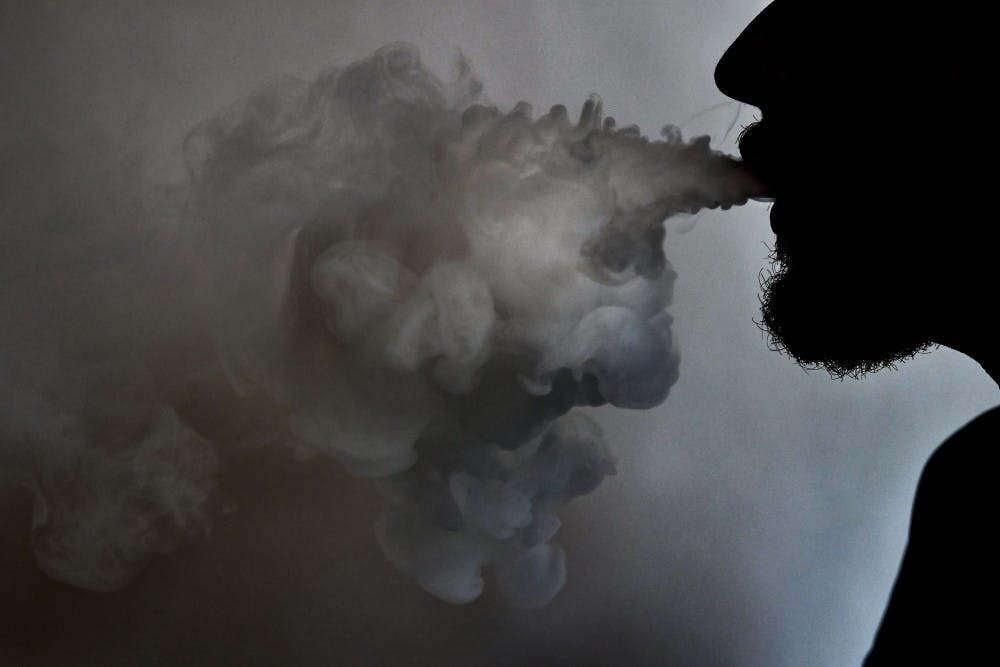Michigan issued a public health emergency on Sept. 4 including a directive to vape shops across the state to stop selling flavored products within 30 days. This isn’t the beginning of regulatory ideas within the state government, and it may not be the end.
The flavor ban encompasses both online and retail sales, and extends to mint and menthol flavors.
The regulation was enacted by Michigan’s executive branch. The Michigan House of Representatives introduced House Bill 4039 in January that has the potential to go further, raising the purchasing age of tobacco and related paraphernalia.
The Centers for Disease Control and Prevention, or CDC, released recommendations last Friday advising consumers to “consider refraining from using e-cigarette products” and to not buy products off the street, whether they contain THC, CBD, nicotine or any other substance.
The report also said to be on the lookout for symptoms of pulmonary illnesses. The CDC’s recommendations were released after the first death linked to vaping.
“Raising the age, it would be less likely for 16-year-olds to get started,” Republican Rep. and bill sponsor Tommy Brann said. “Once you start at a young age, it’s almost so impossible to quit.”
For Brann, the negative effects of underage smoking are personal.
“I did it too. I thought it was the coolest thing to do in high school,” he said. “I remember swimming to a dock, and I was just out of breath ... that’s when I cold-turkey quit. I was just lucky I had enough discipline to quit, but a lot of people don’t.”
The bill would affect vaping and electronic tobacco products as well as traditional tobacco products.
Brann said the bill would need to more explicitly define vaping products before it can be included in the age restriction.
According to Democrat Rep. Robert Wittenberg, a cosponsor of Brann’s bill, Michigan was one of the only states to not have any kind of legislation pertaining to vaping products.
“We were one of the only states that had nothing on the books dealing with vaping or e-cigarettes,” Wittenberg said. “I absolutely think that it’s something we were lagging behind in.”
High profile Republicans like Chris Christie — the former governor of New Jersey — have supported similar bills to raise the legal age to buy and sell tobacco products to 21. Senate Majority Leader Mitch McConnell also said raising the smoking age to 21 is a top priority.
“There’s two Republicans that believed in doing the right thing,” Brann said.
The bill has some bipartisan support as well. Democrat Reps. Wittenberg, Jon Hoadley, Terry Sabo and Kristy Pagan have attached their names to Brann’s bill.
“I remember (Brann) talking about it, and I was supportive of what he was trying to get accomplished,” Wittenberg said.
While Brann has seen support from his fellow politicians, local tobacco businesses are worried the bill could damage their business.
Grant Kennell, manager of Wild Bill’s Tobacco in Lansing, said the age restriction would deplete their business by three-fourths. Kennell made his comment before the flavored products ban.
He said that underage purchases aren’t an issue because Wild Bill’s Tobacco checks ID for every customer.
“I don’t think that it would be necessary for us as a store to raise our age to 21. ... In my opinion, at 18, you can go overseas, you can get shot in the military,” Kennell said. “At 18, you have the life skills to make your own decisions.”
Support student media!
Please consider donating to The State News and help fund the future of journalism.
In its current form, the bill would not grandfather in current smokers under the age of 21. It is still in committee.
“I got elected to protect my citizens and protect the safety and welfare of them,” Brann said. “This is part of it.”
Discussion
Share and discuss “After a statewide ban on flavored vape products, what's next?” on social media.








